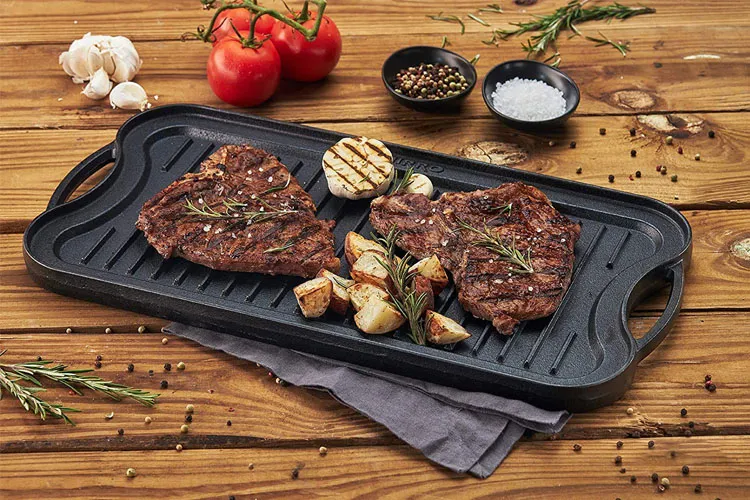
should i get a dutch oven
Should I Get a Dutch Oven? A Comprehensive Guide
When it comes to versatile kitchen cookware, the Dutch oven stands out among the crowd. With its robust construction and ability to retain heat, it has become a staple in many home kitchens around the world. But if you're contemplating whether or not to invest in a Dutch oven, let's explore the pros and cons, cooking techniques, and some of the best ways to utilize this timeless kitchen tool.
What is a Dutch Oven?
A Dutch oven is a thick-walled cooking pot, usually made from cast iron, that comes with a tight-fitting lid. Some variants are also made from ceramic or aluminum. Traditionally used for slow-cooking, stews, and baking, a Dutch oven is incredibly versatile and can be used on the stovetop or in the oven. Its ability to retain heat makes it perfect for both slow-cooked meals and high-temperature baking.
Why You Should Consider Getting a Dutch Oven
1. Versatility in Cooking One of the primary reasons to invest in a Dutch oven is its outstanding versatility. You can use it for braising, simmering, frying, baking, and roasting. Whether you're preparing a hearty stew, baking sourdough bread, or searing meat, a Dutch oven can do it all.
2. Durability Quality Dutch ovens, especially those made of cast iron, are built to last. With proper care, they can serve you for many years, even being passed down through generations. Unlike non-stick pans that may wear out over time, a Dutch oven can develop a natural non-stick surface with seasoning.
3. Even Heat Distribution The heavy construction of a Dutch oven allows it to distribute heat evenly. This characteristic is crucial for cooking that requires consistent temperatures, such as braising meats or simmering sauces, ensuring that every ingredient is cooked to perfection.
4. The Art of Slow Cooking Many people appreciate the benefits of slow cooking, and a Dutch oven excels in this area. You can throw in your ingredients, set the heat low, and let it work its magic over several hours. This technique not only saves time but also enhances the flavors of the dish.
should i get a dutch oven

5. Aesthetic Appeal Dutch ovens come in various colors and styles, making them attractive enough to serve food directly from the pot. They can add a pop of color to your kitchen and dining table, transforming everyday meals into a more special occasion.
Considerations Before Purchasing
While the benefits seem enticing, there are factors to consider before making a purchase
1. Weight Dutch ovens, particularly those made from cast iron, can be quite heavy. If you find lifting and maneuvering heavy cookware challenging, this may be a concern.
2. Cost High-quality Dutch ovens can be pricey. Brands like Le Creuset and Staub offer excellent products, but they come at a premium. If you're on a budget, you may find good alternatives available.
3. Storage Space A Dutch oven can take up considerable storage space, especially if you choose a larger size. Make sure you have adequate space in your kitchen to accommodate it.
Final Thoughts
If you're still on the fence about getting a Dutch oven, consider how you cook and what you typically prepare. If you enjoy slow-cooked meals, hearty casseroles, or want to try your hand at baking artisan bread, a Dutch oven could be a worthwhile addition to your kitchen.
Ultimately, the decision to invest in a Dutch oven comes down to personal cooking habits and preferences. It is a multifunctional tool that can elevate your culinary skills and open the door to a world of delicious recipes. If you can envision regularly using it to create wholesome meals, then it’s definitely worth the investment. After all, good cooking deserves the right tools!
-
Season Cast Iron Perfectly with GPT-4 Turbo TipsNewsAug.01,2025
-
High Quality Cast Iron Cookware - Baixiang County Zhongda MachineryNewsAug.01,2025
-
Premium Cast Iron Pan: Durable & Perfect HeatNewsAug.01,2025
-
High Quality Kitchen Durable Black Round Cast Iron Cookware Pancake Crepe Pan-Baixiang County Zhongda Machinery Manufacturing Co., Ltd.NewsAug.01,2025
-
Cast Iron Cookware - Baixiang County Zhongda Machinery | Nonstick, Heat ResistanceNewsAug.01,2025
-
High Quality Kitchen Durable Black Round Cast Iron Cookware - Baixiang County Zhongda Machinery | Non-Stick, Heat Retention, DurableNewsJul.31,2025


